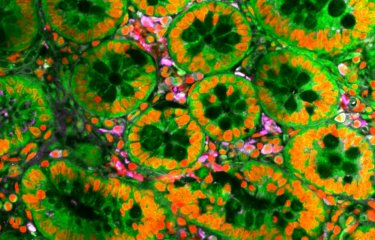The Institut Pasteur in Paris has opened a vast new insectarium for rearing mosquitoes with the potential to transmit arboviruses – viruses transmitted between vertebrates via a bite from a hematophagous vector. By rearing large quantities of mosquitoes in controlled conditions at this new facility, scientists will be better equipped to tackle future challenges associated with emerging vector-borne diseases.
The Institut Pasteur in Paris has inaugurated a new infrastructure for rearing mosquitoes, especially the tiger mosquito, Aedes albopictus, which can now be found in more than 51 French départements and 20 European countries in addition to its natural distribution area in the tropical belt. The new 140m² restricted access facility was opened in May 2019. Work on the insectarium began in September 2017, and after several months of dust and intense effort, the end result more than lives up to the expectations of the entomologists who will primarily be using the new facility.
Anyone entering the insectarium must go through a temperature-controlled +4°C pass-through system to rid them of any unwanted creatures they may have picked up and to prevent them from taking any mosquitoes with them when they leave. A long corridor leads to four rearing rooms, each containing a space for rearing immature stages and a hot chamber for adults in cages kept at 25°C or 27°C, with 75% humidity and a photoperiod adjusted to the mosquito species. Some species bite at night-time, so the rooms containing adult mosquitoes are kept dark during the day!
A second pass-through system with a controlled opening and closing system leads to two other rooms, one for mosquito dissection (digestive tracts, salivary glands, micro-injections, etc.) and the other for keeping genetically modified mosquitoes.
The Institut Pasteur has a long tradition of medical entomology, especially research on the transmission of arboviruses such as dengue, chikungunya, Zika, yellow fever and West Nile Virus (see our fact sheets on specific diseases). The Institut Pasteur has been running a medical entomology course since 1988 and was the first French institution to open a BSL3 laboratory for mosquito infection in 2000. Several teams currently working in France and Europe and in the Institut Pasteur International Network received mosquito infection training at the Institut Pasteur.
"With this facility, we can reproduce the living conditions of mosquitoes as closely as possible, creating the same temperatures, photoperiod and humidity as in the field. It will also give us the opportunity to rear more sensitive mosquitoes that require specific conditions. By working with mosquitoes that have been reared in conditions close to those in nature, we hope to be in a better position to elucidate the factors leading to the emergence of the arboviruses for which they are vectors," explains Anna-Bella Failloux, who leads the Arboviruses and Insect Vectors Units in the Institut Pasteur's Virology Department.
This study is part of the priority scientific area Emerging infectious diseases of the Institut Pasteur's strategic plan for 2019-2023.





